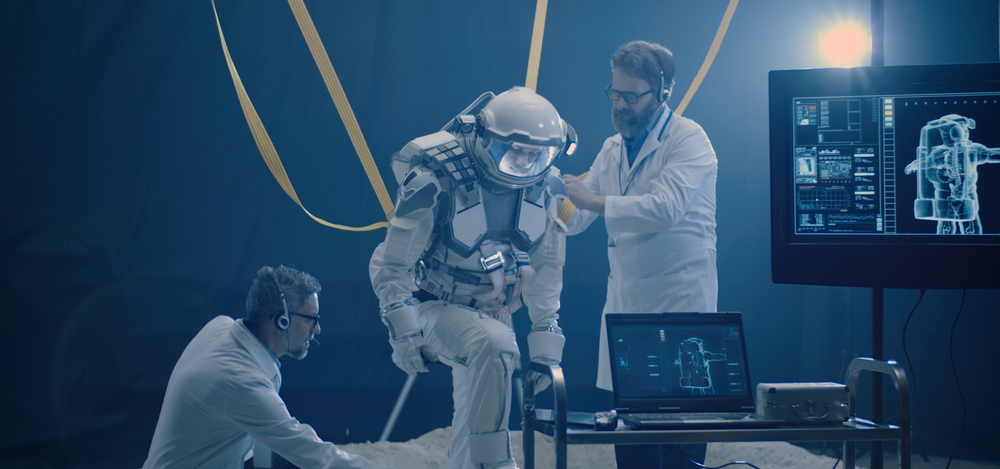
The gravitational force is the weakest of the four forces of nature. It’s easy to defy gravity: just lift something into the air. But the annoying thing about gravity is that it’s both constant and infinite in scope, requiring a surprising amount of work to overcome.
Gravity is so weak that even if it were a billion times stronger than it is now, it would still be the weakest of all forces. All the mass of the Earth is pulling you down, but you can reach out and grab a pencil and overcome all that gravitational force. Naturally, eventually you will tire and put the pencil down, but we have other methods of magically overcoming the force of gravity.
Read more: What is the fifth force?
Defying gravity in space
The magnetic force can keep an object suspended from the side of your refrigerator for eternity. Even stronger magnets using superconductors can levitate entire railcars, allowing for super-fast transport that floats above the track.
Moving on, it’s not that hard to defy gravity and get to space. After all, the edge of space is only 100 kilometers (or about 62 miles) away, and shooting something straight up from that distance isn’t the hardest thing in the world.
But gravity has a superpower. Even at the limits of the atmosphere and the beginning of space, Earth’s gravitational pull is not much weaker than it is at the surface. So unless you keep accelerating, eventually gravity will pull you back.
Most of the energy we put into rockets doesn’t go into space, it goes into staying in space. If you want to completely escape the gravitational clutches of Earth, you need to reach a speed of at least 11.2 kilometers (or about 7 miles) per second, which is about 33 times the speed of sound.
Read more: How to understand Einstein’s theory of gravity
Once in space, we have some methods to simulate the effects of gravity. This is important because constant gravitational pull is vital to maintaining healthy bodies. Without gravity, our hearts become weaker, our bones become thinner, and our entire cardiovascular system declines. Without constant exercise, astronauts who spend too much time in Zero-G it could not survive a return to Earth.
Engineers have developed concepts for rotating space habitats to recreate the effects of gravity. Instead of a massive object on Earth pulling you, the wall of a spaceship will spin and throw you against the outer wall. The centrifugal force it will give you the exact same feeling of gravity that you have on our planet, saving you from the devastating effects of Zero-G.
All this technology is still in the world of science fiction, but space agencies around the world are interested in developing such habitats for long-term missions in space.
Antigravity devices and dark energy
Speaking of science fiction, writers and authors like to come up with all sorts of gravity-defying contraptions, whether to provide artificial gravity for their ships or propel their spaceships into space. Unfortunately, it looks like these kinds of anti-gravity devices will remain in the realm of fiction.
To work with these devices, it will be necessary to use the negative matter, which is a form of matter with a negative mass (not to be confused with antimatter, which is like normal matter but with an opposite charge). We have never observed negative matter in the universe, and we strongly suspect that it could never exist because it would violate our understanding of the conservation of momentum, which is a pretty big deal.
But on the largest scales in space, we already see an anti-gravitational effect. We know from the observations of Edwin Hubble, about a hundred years ago, that our Universe is expanding—over time, the average distance between galaxies is increasing. But in the late 1990s, two independent teams of astronomers discovered something remarkable: The universe is not only expanding, but that expansion is accelerating. The universe is expanding faster and faster every day.
Read more: The universe may be more unstable than you think
The name we give to this phenomenon is dark energy, and it appears to be an anti-gravitational force that repels all matter in the universe. Antigravity isn’t really all that strange in Einstein’s general theory of relativity, which is a set of equations we use to understand how gravity works. In general relativity, any kind of stress, such as the stress in a stretched rubber band, creates an anti-gravitational effect. But usually this anti-gravity effect is completely absorbed by the normal, attractive gravity we are used to.

